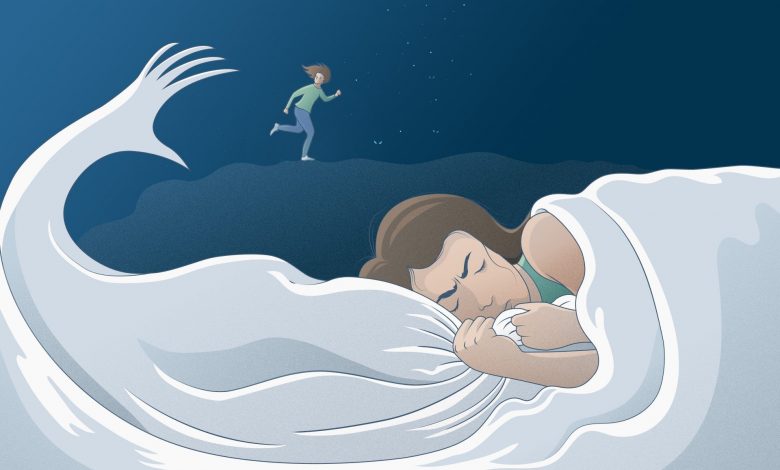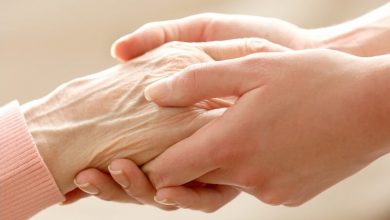
Deciphering the Reality of the Relation Between Dreaming and Sleeping
How can there be a relationship between dreaming and sleeping? The human mind is excellent for generating stories and scenarios that can be acted out in our waking hours. These stories, if acted out, may affect our dream state. If the story is not acted out fully in the waking world, it will eventually manifest itself in our dreams.
Many of us have had our fair share of nightmares and night terrors that have occurred while we were asleep. These events are often more disturbing than they are when we remember them. We tend to forget some of the things we saw and heard during our dreaming sessions, leading us on a wild goose chase over the years, trying to figure out how dreaming and sleeping connected
What is Dreaming?
Dreaming is a way of helping us process our memories. This helps us realize the truth of how life works. Most people who are experiencing a dream state are reliving parts of their lives. They remember scenes and events from their past, especially events that occurred when they were less mature or under a lot of stress. These memories become extremely vivid when dreams are re-enacted or interpreted. That is why most psychologists agree that these memories are essentially dreams.
When you are sleeping, you go into a state of relaxation and unconsciousness. Your thoughts and feelings are left on autopilot, and your brain gets completely shut off. Your mind is not even aware of what is going on and can’t do anything about it.
Why Do Dreams Seems Connected?
This is how the connection between dreaming and sleeping is so strong because when you are in a profound state of relaxation and unconsciousness, you are much more likely to experience dreams. Your subconscious mind is open and waiting for you to release its hold on your daily events and stresses. Because you are in such a relaxed state, it can usually pick up more information from your dreams than you can consciously process through your conscious mind. It is at this point in your dream recall that you will notice the connections between your daydreams and your sleeping experience. You may be surprised by how accurately you recall your dream events. Even if you didn’t necessarily remember every detail of your dream, you were very likely to retain at least some of them.
One of the critical factors that would help you sleep better is a contour wedge pillow. This pillow is especially beneficial for people who sleep on their sides. This pillow follows your neck and shoulder curves and contours, thus helping you keep the spine in alignment.
Dreams Impacting Sleep Cycles
Another way of thinking about how dreaming and sleep is connected is through the analogy of a dream journal. Your dream journal records your dreams and can give you insight into your sleeping patterns. Some people have even taken it upon themselves to go back and write down their dreams as they happened. If you use a dream journal, you can get a better idea of your unique sleeping habits. If you find that you are waking up in the middle of a vivid dream, for example, you may wonder if that is an indication that you need to go back and write down your plan so that you can repeat it.
What Do Dreams Mean?
When you are dreaming, you are usually taking time to remember things about your early life. When we sleep, however, these memories seem to fade into oblivion. When we wake up, however, these old memories still linger. So does it follow that if you are dreaming while you are sleeping, do you remember those dreams and the emotions attached to them? Definitely!
We cannot see ourselves while dreaming has led to many theories about how dreaming – and the meaning behind them – affects us. One of these is the theory that a dream may be a memory of some traumatic event in our childhood. In other words, if we are dreaming, we are trying to remember what happened to us during the time that we were tiny. To make things more transparent, this theory postulates that some memories are dreams.
Are Dreams Helping Us?
Another school of thought believes that our dreams are simply symbolic activities that help us learn lessons passed on to us in our waking hours. For example, if we are dreaming, we are trying to remember something from our childhood. Or perhaps our dreams remind us of things from our childhood. We might also try to remember our dreams while we are sleeping. When we awake, we remember what we saw in our dreams.
The third school of thought suggests that dreaming may be an essential part of our consciousness. During our dreams, we may reflect on our lives. Or we may experience things that could help us grow and learn more about our lives. Whatever the case, when we are dreaming – and there is evidence of this – it can sometimes have real and significant consequences in our lives.
Nightmares and Sleep Cycles
People are said to dream about anything, although most commonly, they refer to having fearful dreams impacting sleep cycles. When you have a nightmare and you are awakened by the feeling of fear, and you are then driven crazy by what happened, your mind begins to fly around and start creating scenarios that are not possible to happen. These nightmares will keep happening again until the dreamer feels that panic and anxiety affect their lives. This is generally a bad case of dreaming, but these dreams can be a sign of an anxiety disorder. It is also not uncommon for people to have recurring dreams that they think are real but, in a real sense, are not real.
Sometimes having a comfortable mattress and a blanket might help you sleep better and avoid nightmares. If you buy a duvet or a comforter, it will not only provide you with a peaceful sleep but will also keep you warm and cozy at night. A comforter is a single-piece blanket without a cover, while a duvet is a quilted blanket that comes in two pieces.
Conclusion
Of course, there is still much more to learn about the relation between dreaming and sleeping. But one thing is for sure: There is a strong connection between dreaming and sleeping. This is evident even in someone who doesn’t have a problem with sleeping. Without going too far, I’d like to suggest that anyone who has trouble getting a good night’s rest should investigate their sleeping habits. It just might be a simple connection that can help improve your dream recall.





